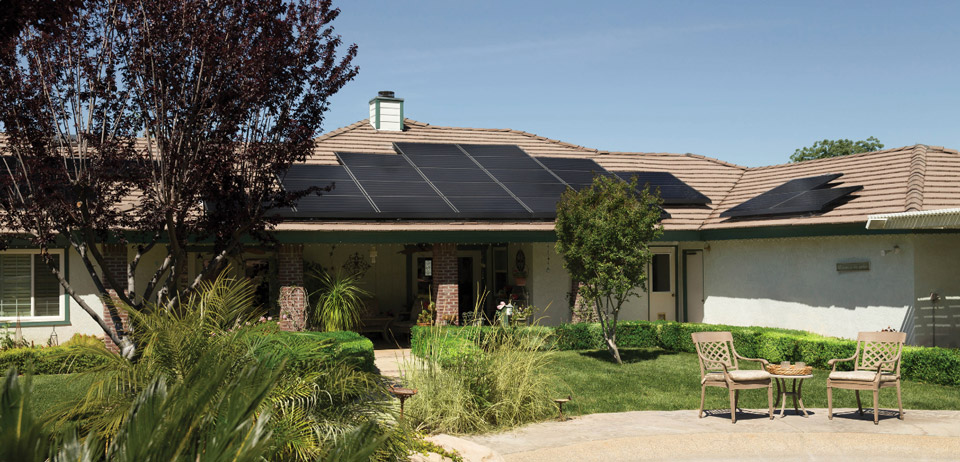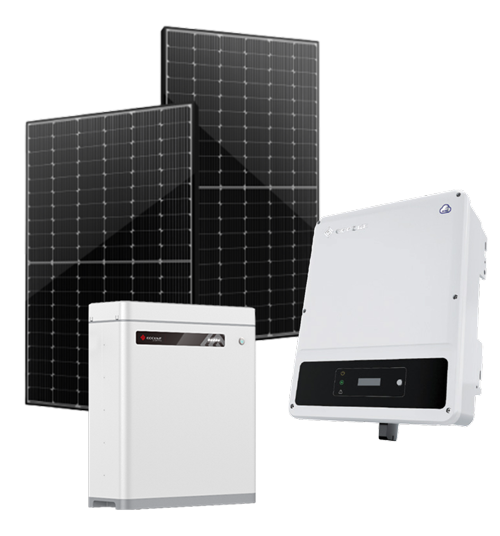Auswell Energy explains how residential solar energy works and the different parts of the system.
When someone mentions solar energy, the first thing that comes to mind is solar panels, right? While nothing can happen without solar panels, the other parts of a solar system are just as important. Solar panel information is now more available than ever but it’s important to familiarise yourself with the other aspects if you’re considering going green.
When planning for residential solar installations, it’s important to consider these five major components that convert the sun into free energy for your home. Of course, no matter the amount of research you do, it’s important to consult the experts before making any final decisions.
Panels
Panels are the ‘face’ of solar. They are the most visible part of the system and are simply a collection of solar cells, made up of 60 or more of these cells and coming in two sizes: 60/66-cell “residential size” and 72-cell “commercial size”. The commercial panels, although they pump out more watts due to more cells, are heavier and more difficult to work with but both still work for residential purposes.
Residential solar installations usually start by considering what panels to buy and how many to fill your energy need. No matter what size, cell type, or cell arrangement the panels are, quality and proper installation are all that matter at the end of the day. For more solar panel information and recommendations, contact the Auswell support team here.
Inverters
Inverters convert the solar energy collected by the solar panels into electricity for the household. The two types of inverters are the string inverter and the microinverter.
The string inverter mounts on the wall and connects all solar panels of the system to convert power. Microinverters are installed below the solar panel itself and is one per panel, allowing them to exist independently from each other but are more expensive. Power optimiser inverters are a third option that combines the two for a cheaper cost but is slightly less effective.
Before deciding on inverter options for residential solar installations, consult the experts for more information.
Racking/Mounting
The third major part of a solar system is the racking/mounting. It’s not a majorly important decision but more premium brands can offer longevity with more flexibility and slower corrosion compared to cheaper options. It’s recommended that solar panels have at least a 10° tilt so that rain can clean the panels, otherwise, the cost of quarterly cleaning may stack up. Furthermore, the optimal angle changes depending on where you are in Australia or the shade from obstacles in the area, so make sure you’re up to date with your solar panel information.
Batteries and Monitoring
These last two aren’t necessary but are highly recommended. Batteries and a monitoring system can help you save energy in the long run, increase efficiency, and get the most out of new residential solar installations.
While batteries are on the expensive side, they can take and store the power produced while at work or running errands for use when the sun goes down. This means that energy production during the day when you’re out of the house isn’t wasted and saves you from running off the grid at night.
A consumption monitor is a small device that sits on your switchboard and measures consumption and energy generation. Inverters will only tell you how much your system is producing but not what you’re actually using. A consumption monitor will show not only how much power is being produced and used, but at what time of the day so you can manage your energy more closely.
How much can you save with solar? Use our Solar Savings Calculator.
Contact Auswell Energy
For more solar panel information on residential solar installations, contact the Auswell team and book a FREE consultation. Get expert advice on our solar installation options and start your solar energy journey.
Auswell Energy is your go-to provider for residential solar power installation on the Gold Coast, Brisbane, and Tweed Heads. We make going green easy!
ALSO READ: 5 Advantages of Solar Energy
SHARE THIS ON:
Contact Auswell Energy!
Get in contact with Auswell Energy for a FREE consultation today! Just call us on 1300 287 955 or send us your enquiries through our contact form.


